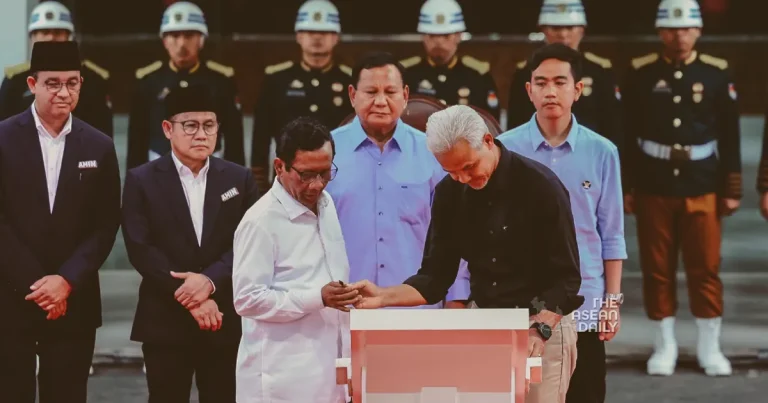4-2-2024 (JAKARTA) As Indonesia’s presidential election approaches, a new “four-finger” movement has gained momentum, aiming to divert support away from candidate No. 2, Mr. Prabowo Subianto, who is perceived to have President Joko Widodo’s backing.
The movement, initiated by Mr. John Muhammad, president of the Green Party of Indonesia, encourages voters to choose either candidate No. 1, Mr. Anies Baswedan, or candidate No. 3, Mr. Ganjar Pranowo, symbolized by the four-finger hand sign.
This campaign gained traction after Mr. Widodo’s elder son, Gibran Rakabuming Raka, was announced as Mr. Prabowo’s running mate. Despite controversy surrounding Gibran’s candidacy, including his age and conduct during debates, his nomination is seen as a bid by Mr. Widodo to influence the election in favour of his son’s ticket.
Critics accuse Mr. Widodo of leveraging his position to sway voters towards Mr. Prabowo, citing instances such as publicized meetings and populist programmes introduced by the current administration.
The four-finger movement reflects broader dissatisfaction with the government’s policies and decisions, including legal amendments perceived to weaken anti-corruption efforts and controversial labour laws.
While the movement may energize opposition to Mr. Prabowo, its impact on the election’s outcome remains uncertain. Urban, educated voters are more receptive to such campaigns, while rural areas may remain unaffected.
Although the movement may not significantly alter the election’s trajectory, it serves to mobilize supporters of Mr. Anies and Mr. Ganjar, fostering greater participation in the voting process. Ultimately, its influence depends on the engagement of voters and the dynamics of Indonesia’s political landscape.




